Are you planning to move to Europe, and are thinking about how to take your family with you? You are in the crowd. Every year, thousands apply for family reunification visas to unite with their spouse, children, and other close relatives.
Whether you’re working in Europe under a skilled visa, like the EU Blue Card, or already hold long-term residency, the family reunification visa can be a step towards a more settled and happy family life abroad.
Let’s break it all down in a clear, simple, and human way.
What Is a Family Reunification Visa?
A family reunification visa is an official document permitting close relatives of a foreign national who legally resides in one of the European countries to join him/her there. Such visa is granted on the premise of upbringing of family that protects and enables one to live together without undue difficulty or hardship.
It can prove quite useful in cases when you:
- Are working in Europe under a visa or residence permit
- Hold EU Blue Card status
- Have long-term residency or refugee status
- Are a citizen and want to sponsor non-EU family members
It guarantees that families remain together and support each other emotionally and financially while migrating into a new life in Europe.
Who Can Apply For a Family Reunification Visa?
Eligibility is determined by your current residence status and the country where you are situated, but in general, the following family members qualify:
- Spouses or registered partners
- Children under 18 (sometimes under 21)
- Dependent adult children or parents (in some cases)
- Same-sex partners (recognized in most EU countries)
Certain countries request more evidence to prove, for example, a stable relationship or financial dependency, particularly when no marriage exists. Any legal document or family documents would be the must-have to establish your family connection.
Family members of a person who holds a valid job offer or work permit may also be eligible, depending on the country’s rules.
Requirements for a Family Reunification Visa
Most European countries expect the following:
- A valid visa or residence permit of the sponsor
- Proof of family relationship (like marriage or birth certificates)
- Proof of stable and sufficient income
- Proof of adequate housing for the family
- Comprehensive health insurance
- A clean criminal record
- Language or integration requirements (in certain countries)
Additional EU-wide Considerations
The European Union family reunification legislation also provides a common procedure within several countries. This gives one more predictability and legal security. For example, countries such as Germany, France, and the Netherlands are renowned for processing applications for family reunion visa through this EU directive.
Understanding EU Family Reunification
The EU Blue Card family reunification process is significantly facilitated by the EU Family Reunification Directive, which applies to most EU countries and provides a uniform legal framework. It constitutes an enormous benefit to non-EU nationals wishing to take in family members.
Benefits include:
- Equal treatment for reunited family members
- A right to appeal if your application is denied
- Clear and shorter processing times in many cases
This makes navigation through the system easier for those who come under EU family reunification rules.
How the EU Blue Card Helps Families
If you’re a skilled worker with an EU Blue Card, you’re in luck. This visa comes with family-friendly benefits that simplify the family reunification visa process.
Advantages for EU Blue Card Holders
- Faster visa processing for family members
- Lower or no language requirements
- Fewer financial restrictions
- Spouses can work without needing a separate work permit
The EU Blue Card family reunification process is smoother and more favorable compared to other visa types.
Step-by-Step Guide on How to Apply For Visa
Moving family to Europe with the family reunification visa, appears difficult by all means but becomes easier with taking the right steps. This involves document paperwork, timing, and eligibility checks. Whether on the work visa, having long-term residence, or having the EU Blue Card, steps below will guide you through the application without prejudice.
Step 1: Check Eligibility
Ensure you hold a valid visa or permit. This can be a work visa, EU Blue Card, or long-term residency. Some countries require a minimum stay before you can sponsor a family.
Step 2: Prepare Your Documents
Documents commonly required include:
- Valid passports
- Marriage or birth certificates
- Proof of income and suitable accommodation
- Current residence permit
- Health insurance for all family members
- Passport-sized photos
- Completed application forms
Organize everything before submitting to avoid delays.
Step 3: Submit Your Application
The application has to be submitted to the appropriate authorities or the nearest embassy. Some countries will accept online submission for applications while others might require embassy appointments for submission in person.
Step 4: Wait for Processing
Processing times vary. It can take an average of 1-6 months. In countries implementing EU family reunification rules, updates and timelines are more often provided. In many cases, this stage also includes the legalization of required documents as well.
Step 5: Travel and Register Locally
Your family will travel to Europe after approval. Registration of family members will be required at immigration office, once they arrive.
Different European countries have different requirements for visa processing. Here is a comparison of a few of them;
| Country | Minimum Stay Before Application | Processing Time | Work Rights for Spouse |
| Germany | 0–3 months | 1–3 months | Yes |
| Netherlands | 1 year | 3–6 months | Yes (if Blue Card) |
| France | 18 months | 3–5 months | Yes |
| Sweden | No minimum (for Blue Card) | 2–4 months | Yes |
Common Problems and How to Avoid Them
Even with everything in order, some challenges can delay your family reunification visa:
- Insufficient income or proof of funds
- Lack of proper housing documentation
- Missing or untranslated official documents
- Long processing times during peak seasons
Tips to overcome issues:
- Begin the application process early
- Use certified translations for all non-English documents
- Double-check eligibility and income requirements
- Consult immigration professionals for complex cases
Life After Reunification: What to Expect
Being reunited with loved ones across the border can feel like a heavy task, but it need not be. If you have been living in Europe with a preference for having your family close by, that would require a family reunification visa, which is the way to go.
Adjusting to Life Together
When family reunification visa holders come to join you, life is more stable and complete. You’ll no longer have to manage life apart, and the emotional and financial benefits are significant.
Legal and Social Benefits
They can:
- Reside legally in the host country
- Access public schooling for children
- Receive healthcare if insured
- Attend integration or language programs
Migrants who have been living in a foreign country for years can also apply for a long-term residency or citizenship eligibility for their families. Some countries tend to offer even a few work rights, along with education aid of the spouse, making it more comfortable to integrate the whole family.
With family reunification, families can set themselves, energizing their current lifestyle and embedding themselves into local life to feel truly at home.
Wrap Up
The family reunification visa goes beyond being just a form; it’s an opportunity to restore your life alongside those you cherish. Whether you’re currently in Europe or just preparing for your relocation, don’t postpone uniting your family. A cohesive life overseas is more satisfying and safe.
Allow the EU Info Hub to assist you at each stage and start your path to unity today.
FAQs
1. Can I apply for a family reunification visa while holding a student visa?
Indeed, you must demonstrate adequate income, housing, and fulfill particular country conditions.
2. Does my spouse need to speak the local language?
It varies by country. Some need fundamental language abilities, whereas EU Blue Card family reunification frequently bypasses this requirement.
3. How long does it take to get a family reunification visa?
Processing durations differ but typically range from 1 to 6 months, based on the country.
4. Can my spouse work after joining me?
In the majority of EU countries, yes. Particularly under the EU Blue Card family reunification, spouses may begin working right upon arrival.

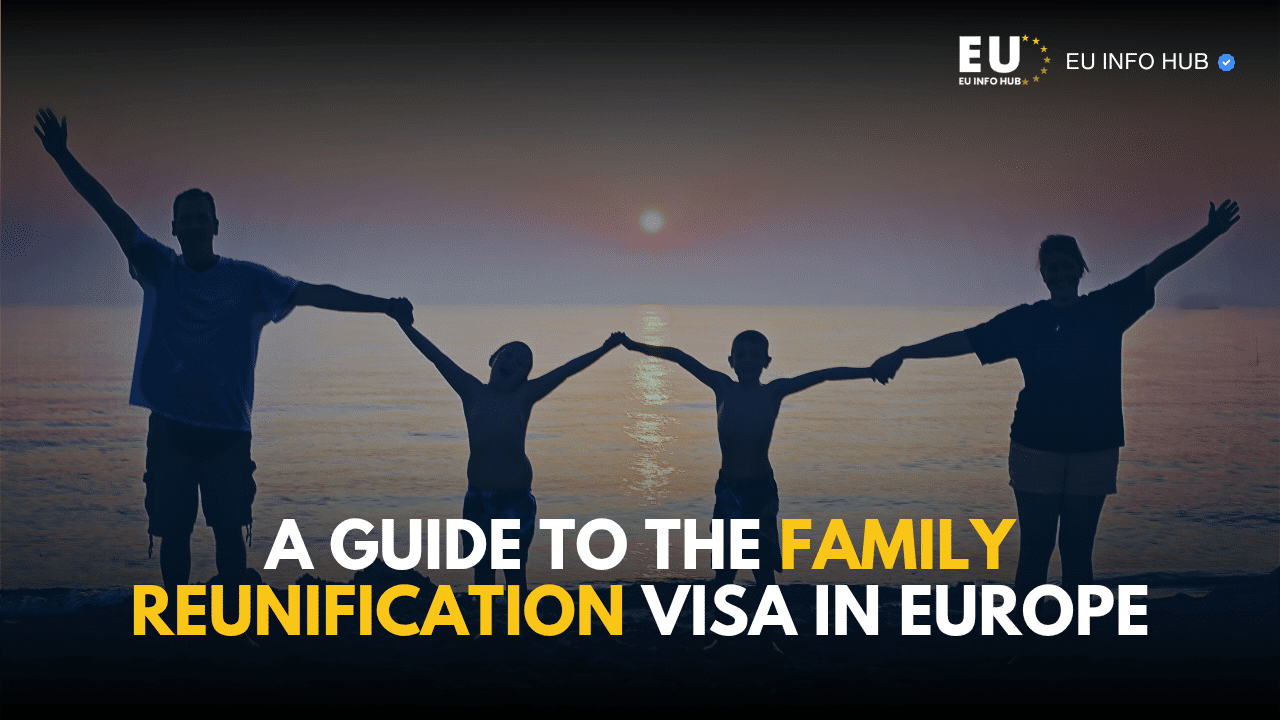


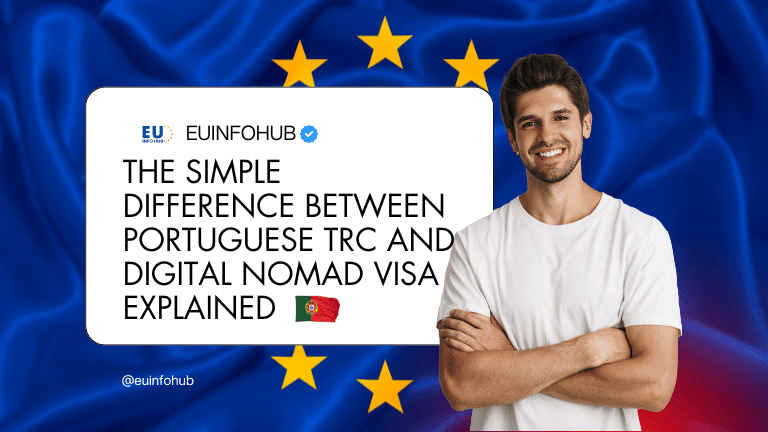
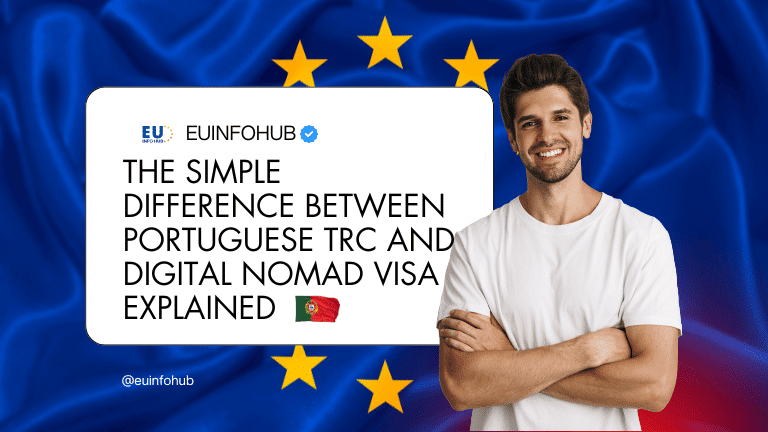

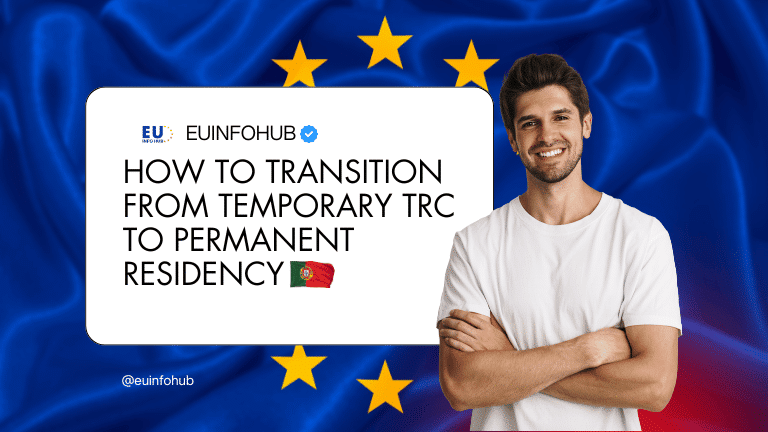


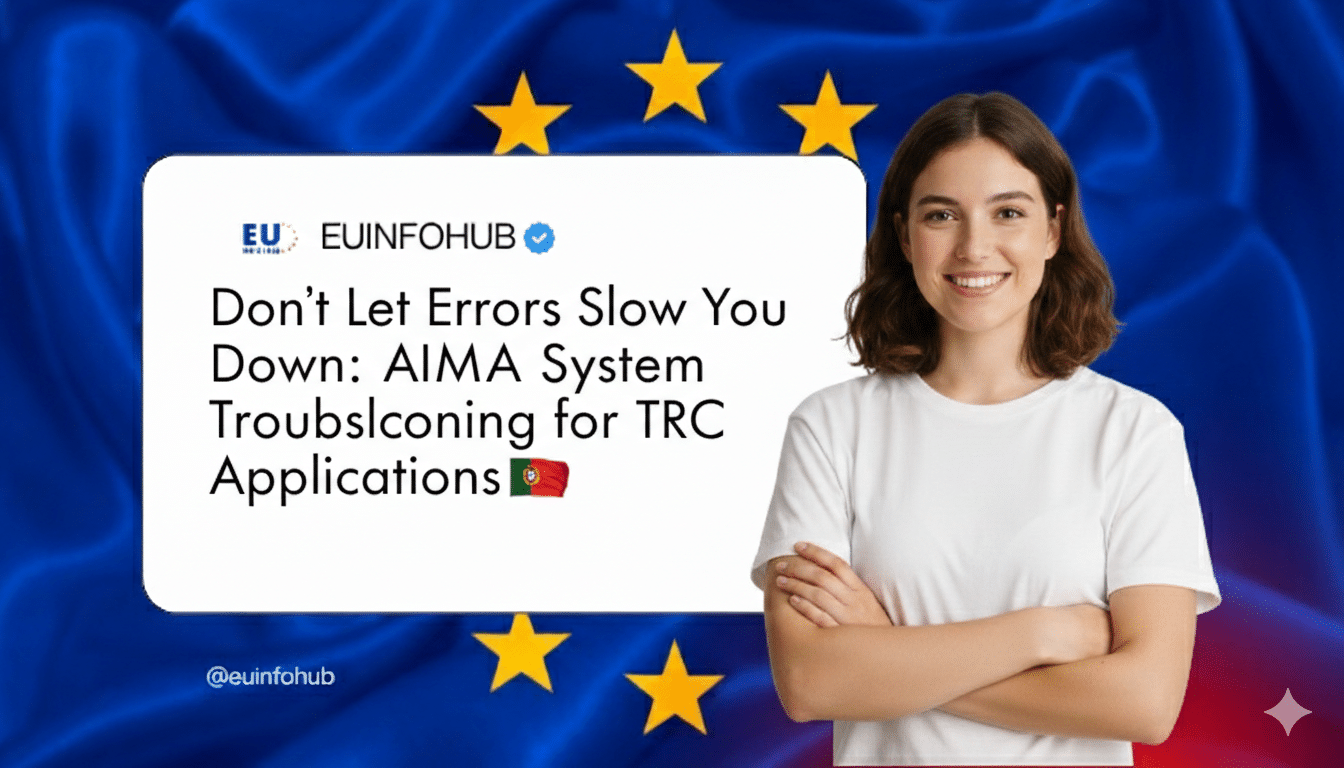
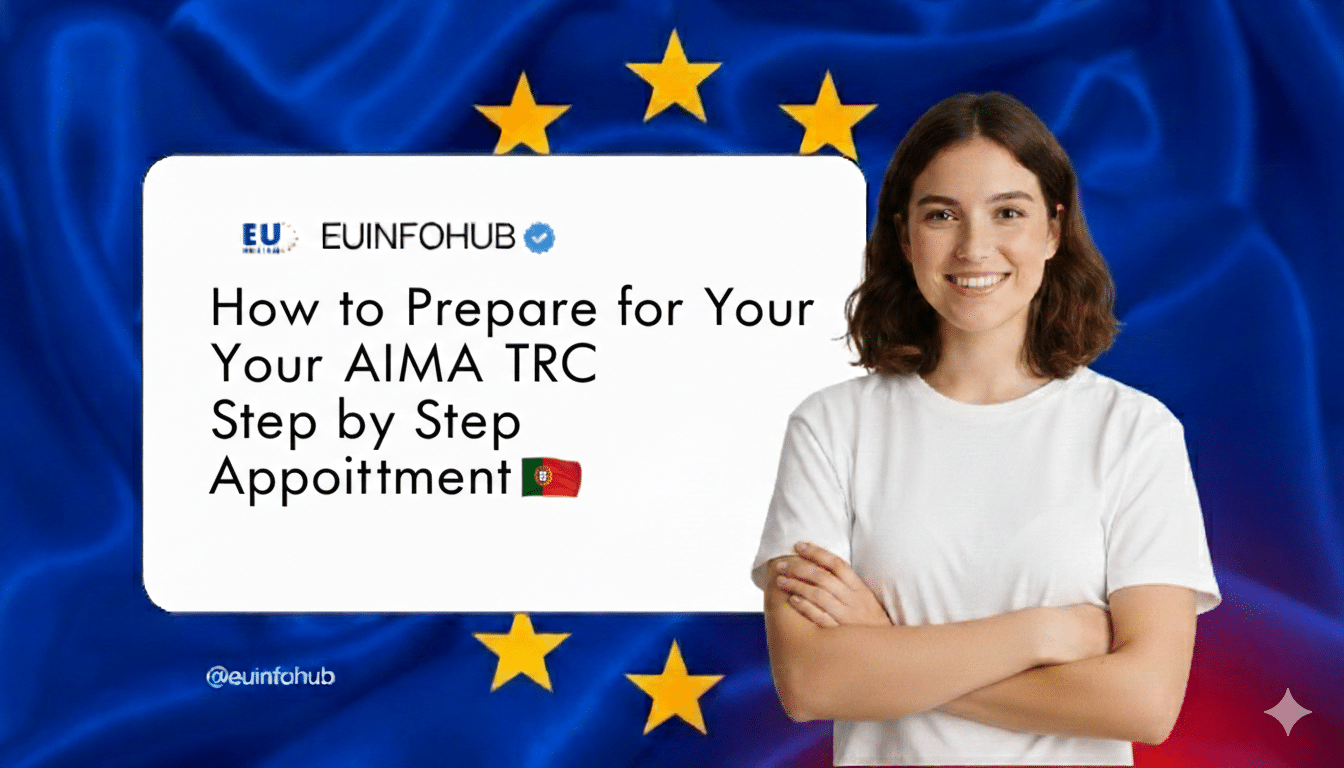

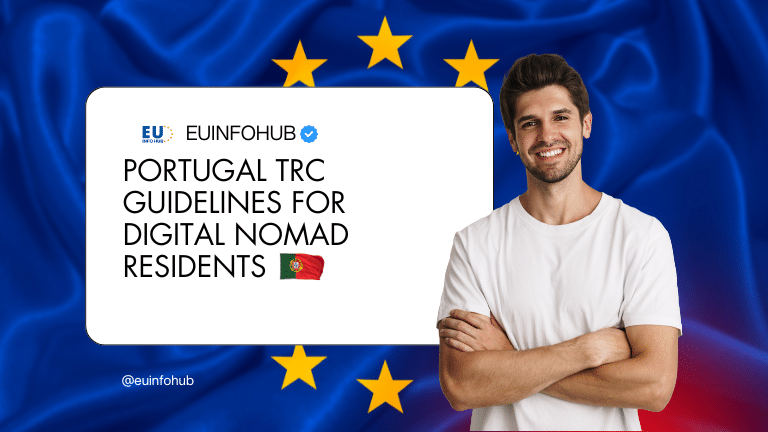
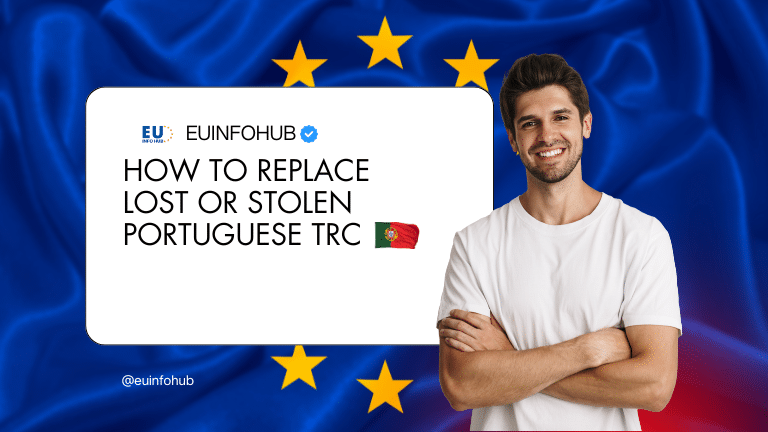

2 thoughts on “A Guide to the Family Reunification Visa in Europe”